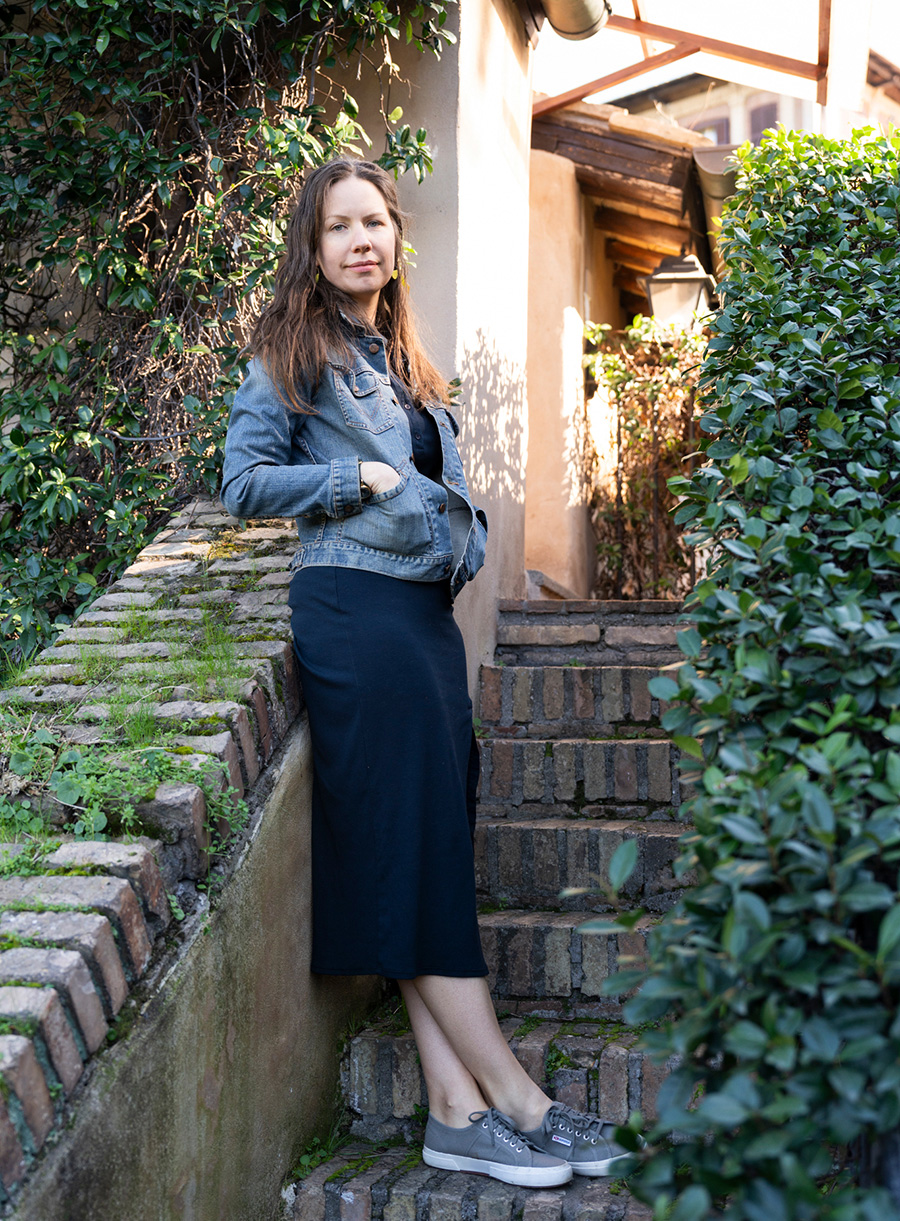Kate Soper is the 2024 Frederic A. Juilliard/Walter Damrosch Rome Prize Fellow in musical composition. She is working on Orpheus Orchestra Opus Onus, a monodrama for soprano and orchestra which Soper will perform with the New York Philharmonic in May 2025. This composition “presents Orpheus—part vaudevillian, part tragic icon, part composer nerd—wondering at his legacy as the begetter of the Western musical canon while the orchestra takes us through it,” she tells us. “I want to make a case for an alternate conception of music’s purpose in our lives, and for the enduring presence of the human voice.”
When not immersed in her work on the Janiculum or exploring the city of Rome, Soper is a codirector and performer for Wet Ink, a New York–based new music ensemble dedicated to adventurous music. She is also the Iva Dee Hiatt Professor of Music at Smith College.
What are you working on while at AAR? Has your project changed since arriving?
I applied to the Rome Prize with a proposal for a one-woman show in which I play Orpheus, railing against the evolution of institutionalized music against a backdrop of prerecorded and digitized orchestral sounds. Then, a couple of months before my fellowship began, I received a commission from the New York Philharmonic for a live version of this piece. So, rather than being alone onstage, I will soon be yelling at, pleading with, and singing to a living and breathing orchestra (and what an orchestra!). Needless to say, I was pretty excited about this change, and the timing worked out perfectly for me to start reshaping my ideas under the unique circumstances of the Academy.

What have you seen in the city of Rome that has made a strong impression on you?
I was excited to come to Rome to experience the collapsing timeline of human history that comes with being in a place of continuous human habitation. Eventually, I found this sensation to be somewhat exhausting. The nearness of the ancient past can make the history of the species feel not expansive but hectically short, as if not much has changed. But this feeling fed my project, as Orpheus wonders: why can’t we go back to the origin of music as a pure, silent ratio in the stars? Why do we constantly have to enlarge everything? Rome is destroyed by fire in the year 64, so Nero builds a gigantic palace over the ruins, which is torn down to become the Colosseum … etc. Ultimately, I expect to be sorting through my impressions of Rome for a good while after I leave. I’m curious to see what they might stir up in my brain.
Have you had any great conversations with other fellows or residents that changed your perspective?
The fellows have been wonderful, and I’ve had many useful, thought-provoking, and funny conversations. One new perspective for me, being surrounded by so many classicists, was how the field of classical studies is caught up in various turmoils and controversies. I’ve personally been drawn back to the well of Greco-Roman mythology many times in my work, so it’s been interesting to examine that impulse in a new light. Given the length of time that we’re all here together, though, I find that a chit-chat over a spritz can be just as nourishing as a deep conversation. I love learning new things but am also just grateful to know all these cool, talented, fun new people.